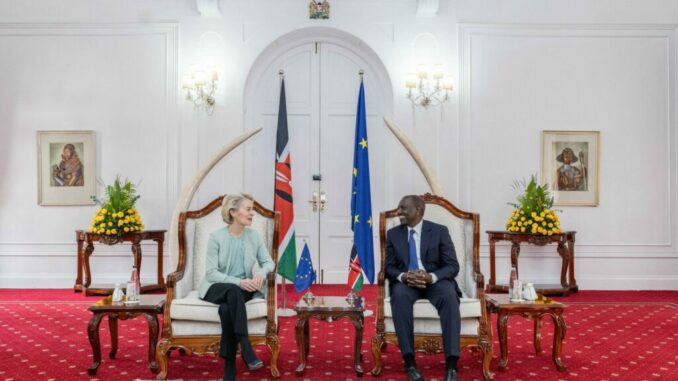
The European Union and Kenya signed an Economic Partnership Agreement (EPA) in Nairobi on Monday December 18 morning. The ceremony was attended by the Kenyan Head of State, William Ruto, and the President of the European Commission, Ursula von der Leyen. According to a European Commission press release, this is the EU’s “most ambitious economic partnership” with a developing country. It is the culmination of negotiations that began almost ten years ago. Nairobi and Brussels widely welcomed the signing.
It’s a “historic turning point”, according to Kenyan head of state William Ruto. A “win-win” situation for the President of the European Commission, Ursula von der Leyen. “At the heart of this agreement is our desire to put money into the pockets of ordinary people. We can only conclude that, while this signature carries immense promise, it is also the beginning of a historic partnership for historic transformation,” explained William Ruto.
The agreement aims to develop trade relations between the two markets. It guarantees duty-free, quota-free access for Kenyan products imported into the European Union. European products exported to Kenya will benefit from a gradual tax exemption. A gradual opening of the Kenyan market is planned over 25 years, to prevent it from being flooded by European goods. Nairobi may also decide to exclude certain products: agricultural products, wines and textiles, for example, should be excluded.
Trade between the two markets is already booming, rising by 27% between 2018 and 2022. The EU accounts for over 20% of Kenya’s exports, mainly vegetables, fruit and flowers. It is also Kenya’s second largest trading partner. Europe, on the other hand, mainly exports mineral products and machine tools to Kenya. The agreement also includes commitments to sustainable development, environmental protection and labor rights.
